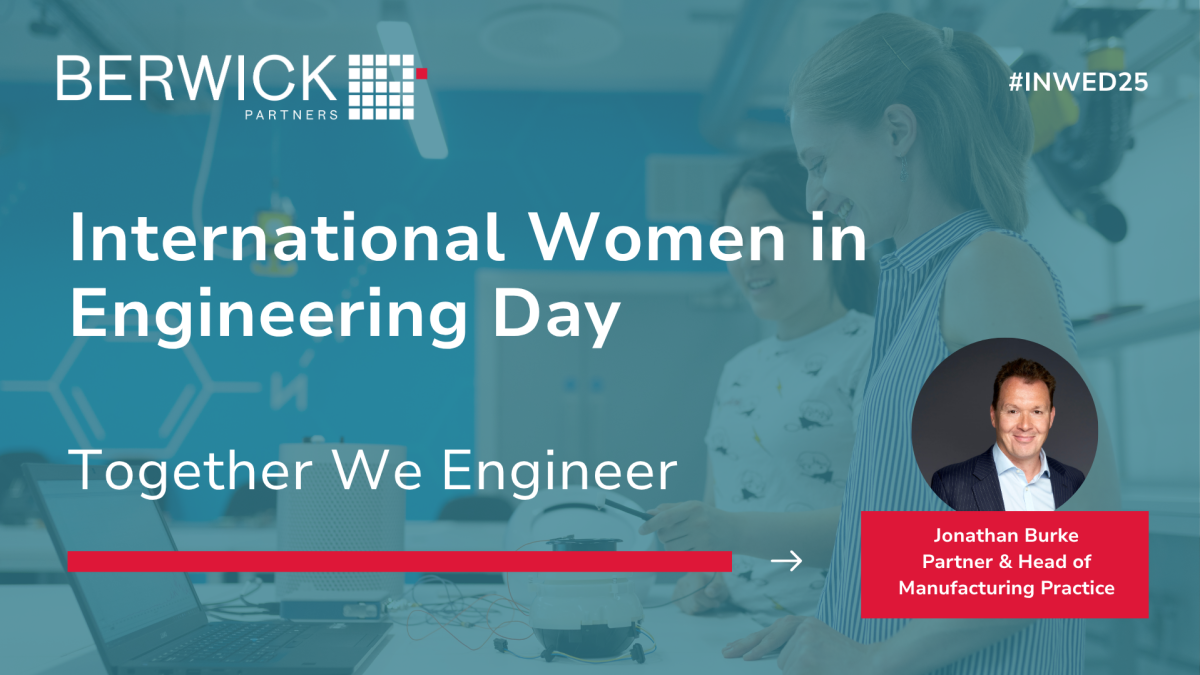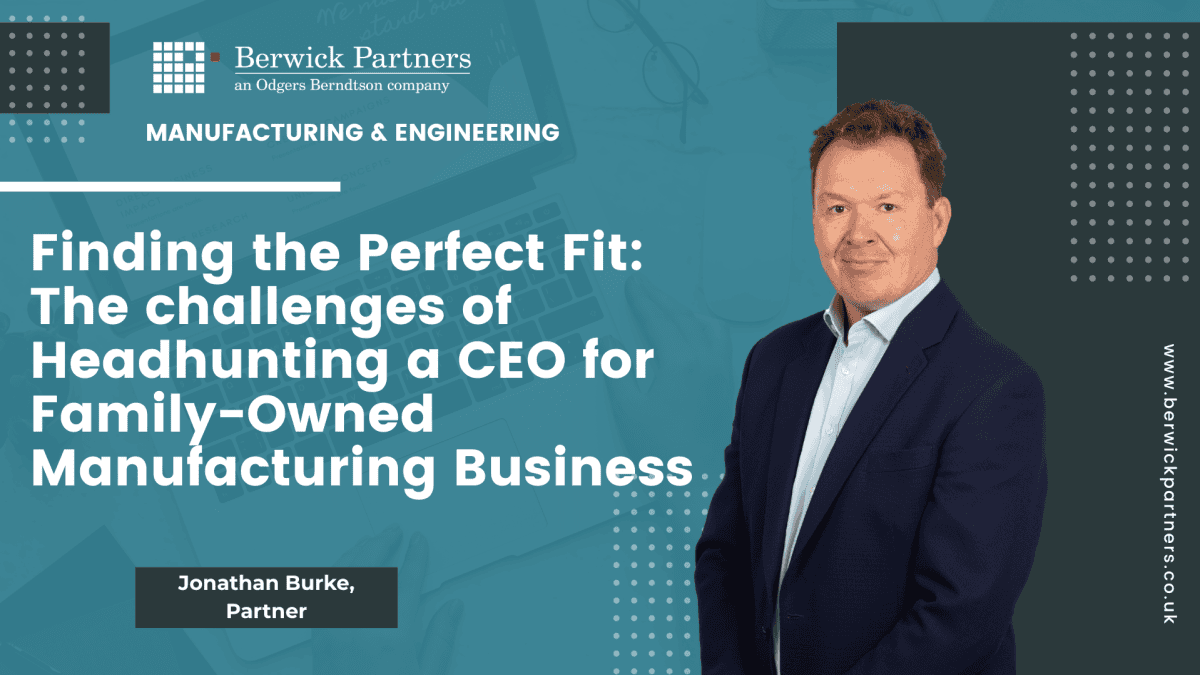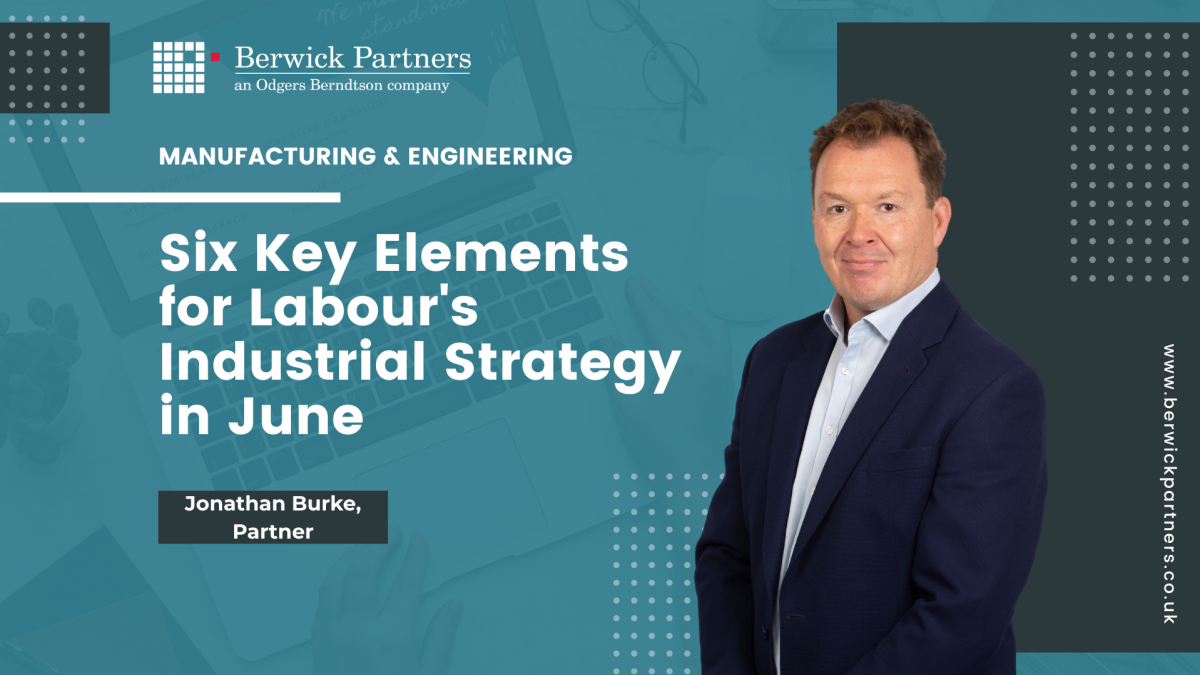Board Evolution: An interview with Nick Brayshaw OBE
Board Evolution – Berwick Partners are currently undertaking a series of interviews with business leaders, to understand how they and their Boards have adapted and reacted to the increasing complexities of the world in which we operate. We are examining the importance of leadership DNA and the behaviours, traits and skills that are vital to an evolving Board.
As part of the research, Berwick Partners’ Jonathan Burke spoke to established leaders from the UK’s Manufacturing sector, from both the corporate Plc and SME environments. In our latest interview we hear from Nick Brayshaw OBE – a highly experienced Non-Executive Director of industrial and manufacturing organisations, and currently Chairman of Sentinel Performance Solutions, Technical Fire Safety Group, and Kingswood Capital.
Considering the turmoil and uncertainty that COVID-19 has caused, what should be done to prepare the board / ExCo, to ensure they can rise to new and unexpected challenges in the future?
Some of the younger people in the companies I work in do not have the same level of experience as I do, of leading a business through boom-and-bust cycles. This experience has proven pivotal on the boards I am part of. In times of crisis, the well-worn phrase ‘cash is king’ is at the very top of our board agenda – not least in our requirement to our shareholders to be solvent.
What has also been evident during this recent period is how capable your management team is, which is not as obvious during the good times. A higher quality team responds quicker, and with better quality outcomes. As the Warren Buffet quote states…. ‘only when the tide goes out do you discover who’s been swimming naked.’
Coming out of downward cycle creates great opportunities for businesses that have the right people with the right skills – they have the opportunity to outperform their market.
Given the breadth of issues that boards need to adapt to, such as Brexit, Sustainability, Technology Transformation, D&I, Supply Chain & Business Resilience, has COVID accelerated or slowed the pace of change on these subjects?
Good leaders shine through in difficult times and do disproportionately well in gaining market share when things are tough. We have gone from a routine monthly board meeting, to a weekly one – and rather than spending a full day in London doing this we are managing our time more effectively by meeting through online video calls. As a result, our board teams are communicating far better than we used to, and it may not go back to how things used to be.
Can you truly have a board/ExCo for all seasons – boom, bust, crisis, recovery, or growth? How do effective leaders bring the best of themselves to bear?
Most companies are constrained by their management teams, and their capability to grow is usually linked to the quality of this group. A team that has performed well will, at some point, reach a plateau of revenue growth, requiring a new management team to take the business to the next level…a start-up team is different to the one that would internationalise it.
It is important to have people who are larger than the business that they are leading – so that they do not get altitude sickness. You need people who can lead a business at the next level – especially the CEO who creates the vision for the scale of the enterprise – and the ExCo.
Do businesses need to be bolder in their decisions regarding board structure? If so, how?
Two businesses that I am Chairman of have not changed their board structure, because they have not needed to. However, in parallel with COVID-19 we have all had the Brexit process in play. With our international strategy in focus this has made us recognise that our future leadership will need more European/ international experience.
Post-COVID-19, does the relationship between the NED’s/main board and ExCo need to evolve?
The interaction between the NED’s and the Board and ExCo for the businesses I am part of, has already evolved – because it has had to move from a monthly, to a weekly meeting. We are now better connected, with less time spent travelling, which gives me more time to speak with the Board team and the NED’s. And now that we meet virtually, without everyone having to wear their normal corporate clothes, we have moved to a better dynamic in our meetings.
In the future, when considering if we need to revert to face-to face board meetings we will ask the question – does it justify the travel? Whilst this may work for an established board there is no doubt it will be much harder for a new member to the team. The future may well be a hybrid model of virtual and face-to-face meetings.
I have been a Chairman for 11 years. If a company is not performing well now, it is increasingly my role that has the spotlight on it, rather than the CEO. So, organisations are looking for more value from their Chairs, with Private Equity groups being more demanding in their selection of candidates for future roles – ensuring they have the right sector and financial knowledge.
For more information please contact Jonathan Burke, Head of the Manufacturing and Engineering practice at Berwick Partners.






